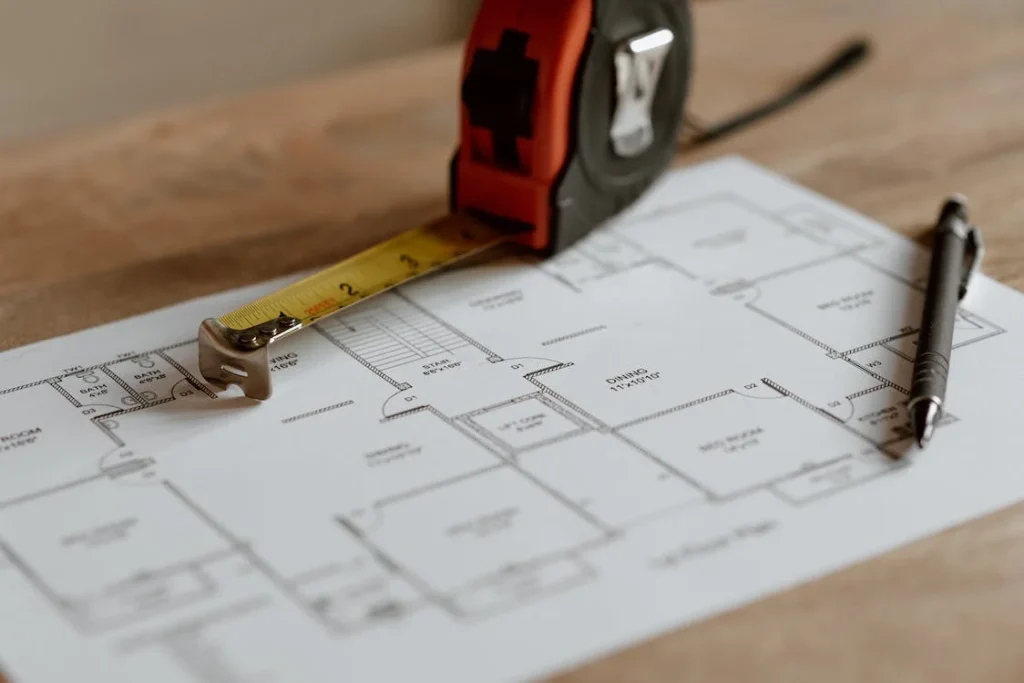Construction projects can be complex and challenging to manage, with numerous moving parts and stakeholders to consider. To ensure the successful completion of a construction project on time and within budget, it is important to maximise efficiency at every stage of the process. In this blog, we will provide five practical tips for maximising efficiency in your construction schedule, including ensuring adequate resources, open channels of communication, tracking and monitoring progress, utilising technology, and managing risks. By implementing these tips, you can help to reduce delays, improve collaboration, and ensure the successful completion of your construction project.

1. Create a Detailed Project Plan:
Creating a detailed project plan is essential for any construction project. The plan should be a comprehensive and detailed roadmap that outlines the tasks and activities that need to be completed and sets the timeline and budget for each phase of the project.
Here are some key elements to include in your project plan:
- Project Objectives: Define the objectives of your project, including the overall goal and what you hope to achieve. Make sure the objectives are SMART (Specific, Measurable, Achievable, Relevant, and Time-bound) to ensure that they are clear and realistic.
- Scope of Work: Define the scope of work that needs to be completed, including the deliverables and outcomes for each phase of the project. This will ensure that everyone involved in the project is aware of what needs to be done and what is expected of them.
- Timeline and Milestones: Set a realistic timeline for the project, including start and end dates for each phase of the project. Include milestones that mark the completion of key deliverables to help track progress and ensure that the project stays on track.
- Resource Allocation: Identify the resources that will be required for the project, including labor, equipment, and materials. Make sure that you allocate resources based on the scope of work and timeline to avoid delays and setbacks.
- Risk Assessment and Management: Identify potential risks and develop a plan to mitigate them. This should include a risk assessment that identifies potential risks and a risk management plan that outlines how to address them if they arise.
- Communication Plan: Develop a communication plan that outlines how information will be shared among stakeholders. This should include regular progress updates, meeting schedules, and contact information for key project personnel.
- By taking the time to create a detailed project plan, you can set a clear direction for your construction project and ensure that it stays on track from start to finish.
2. Use Construction Management Software: Construction management software can help streamline your operations and provide real-time updates, which can help you stay on top of changes and keep track of project progress. The software can help you manage schedules, budgets, resources, and communication with stakeholders.
More on the key benefits of using construction management software:
- Streamlining Project Management: Construction management software can help streamline project management by providing a single platform for managing schedules, budgets, resources, and communication with stakeholders. This can help to reduce errors and miscommunications and increase collaboration and productivity.
- Real-Time Progress Tracking: Construction management software allows you to track progress in real-time, which can help you stay on top of changes and keep track of project progress. This feature can be especially useful for managing multiple projects, as it allows you to easily monitor progress across all projects.
- Resource Allocation: Construction management software can help you manage and allocate resources more efficiently. It can help you track and manage labour, equipment, and materials, ensuring that you have the resources you need when you need them. This can help to avoid delays and reduce costs.
- Collaboration: Construction management software can also help to improve collaboration between different stakeholders, including contractors, suppliers, and customers. It can provide a platform for sharing information and updates, as well as a space for collaboration on specific tasks or issues.
- Cost Control: Construction management software can help to control costs by providing real-time updates on project expenses and allowing you to track and manage expenses more efficiently. This can help you to identify potential cost overruns early and take corrective action before it’s too late.
3. Keep Communication Channels Open: Clear communication is essential to maintain project efficiency. Make sure that communication channels are open and available to all stakeholders, including contractors, suppliers, and customers. Regular meetings can help to address any concerns, share updates and ensure everyone is on the same page.
Some key benefits of having open communication channels:
- Improved Collaboration: Open communication channels can improve collaboration between different stakeholders in a construction project, including contractors, suppliers, and customers. By sharing information and updates in a timely and transparent manner, all stakeholders can work towards the same goals and ensure that the project progresses smoothly.
- Reduced Delays: With open communication channels, stakeholders can quickly and easily address issues or changes that may arise during the construction process. This can help to reduce delays and keep the project on schedule.
- Increased Efficiency: Open communication channels can also increase efficiency by providing a platform for real-time updates and feedback. This can help to avoid miscommunications and reduce errors, ultimately leading to a more streamlined and efficient construction process.
- Improved Problem Solving: With open communication channels, stakeholders can work together to identify and solve problems more effectively. By sharing information and ideas, stakeholders can develop more effective solutions and avoid unnecessary delays or costs.
- Greater Accountability: Open communication channels can also help to establish greater accountability among stakeholders. By clearly defining roles and responsibilities and ensuring that all stakeholders are aware of them, you can reduce the risk of misunderstandings and ensure that everyone is held accountable for their actions.

4. Ensure Adequate Resources: Resources such as labour, equipment, and materials are essential to the success of any construction project. To ensure efficiency, you need to have adequate resources to complete the project on time and within budget. You should plan for contingencies and identify alternatives in case any resource is not available.
- Work with Reliable Suppliers: In order to ensure that you have access to the resources you need, it is important to work with reliable suppliers who can provide high-quality materials and equipment in a timely manner. Do your research and choose suppliers who have a track record of delivering on time and meeting quality standards.
- Optimise Resource Allocation: It is important to allocate resources efficiently in order to maximise your construction schedule. This may involve adjusting the number of workers on a particular task, or utilising equipment more effectively. By optimising resource allocation, you can reduce waste and improve efficiency.
- Plan Ahead: Adequate resource planning involves anticipating your needs and planning ahead to ensure that you have the resources you need when you need them. This means coordinating with suppliers, scheduling deliveries in advance, and anticipating potential delays or bottlenecks in the supply chain.
5. Track and Monitor Progress: It is important to track and monitor progress throughout the project to identify any potential delays or issues. Monitoring progress helps you to keep your construction project on track and avoid any potential setbacks. Use a construction management tool or software to get real-time updates, progress reports, and notifications for any potential issues.
By implementing these five tips, you can maximise the efficiency of your construction schedule and ensure the successful completion of your project on time and within budget.
A good construction software makes use of good project management functionality, estimate and financial/accounting tool functionality, job management, scheduling and planning and support functionalities and more. WunderBuild is a construction management software that aims to provide all of these functionalities and more to bring out the best outcomes for a project.
It is currently offering a free trial, visit here to try WunderBuild for free.



